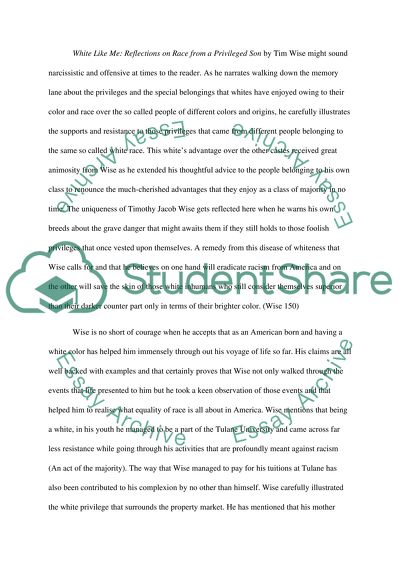Cite this document
(“White Like Me: Reflections on Race from a Privileged Son by Tim Wise Book Report/Review”, n.d.)
Retrieved from https://studentshare.org/family-consumer-science/1420900-white-like-me-reflections-on-race-from-a
Retrieved from https://studentshare.org/family-consumer-science/1420900-white-like-me-reflections-on-race-from-a
(White Like Me: Reflections on Race from a Privileged Son by Tim Wise Book Report/Review)
https://studentshare.org/family-consumer-science/1420900-white-like-me-reflections-on-race-from-a.
https://studentshare.org/family-consumer-science/1420900-white-like-me-reflections-on-race-from-a.
“White Like Me: Reflections on Race from a Privileged Son by Tim Wise Book Report/Review”, n.d. https://studentshare.org/family-consumer-science/1420900-white-like-me-reflections-on-race-from-a.


